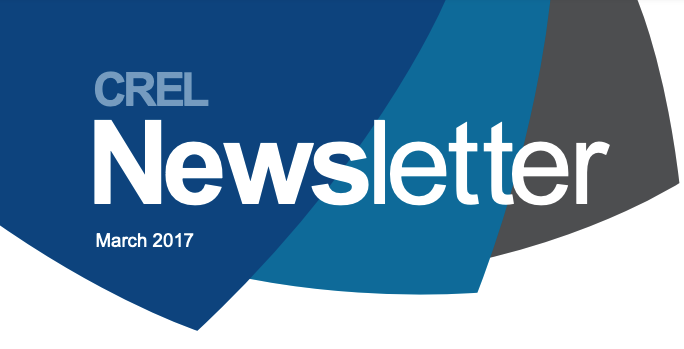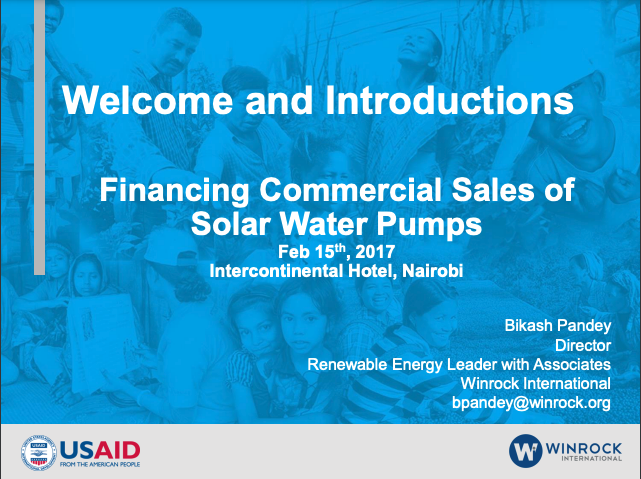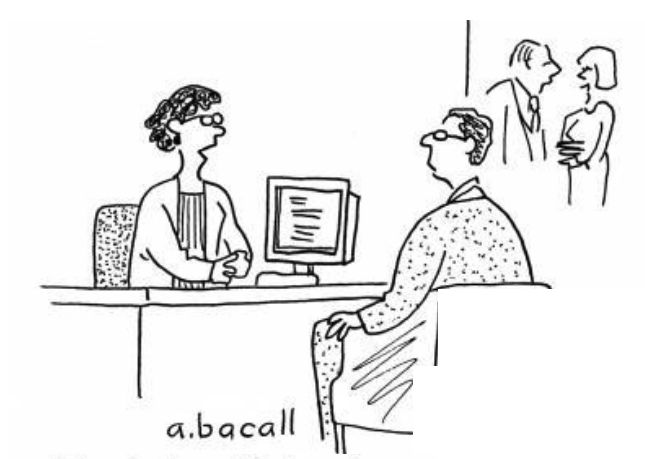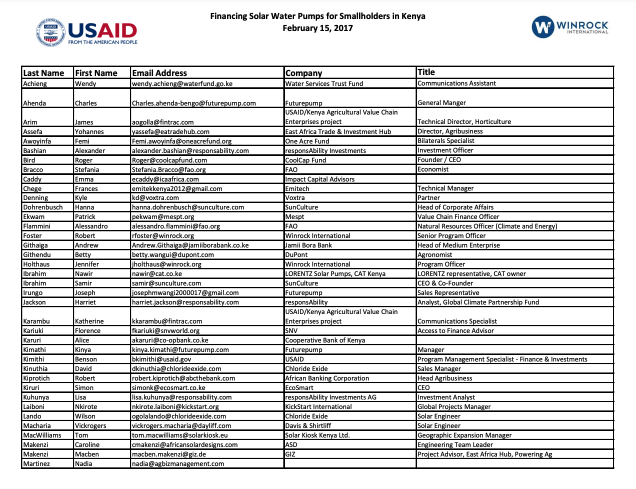Resources
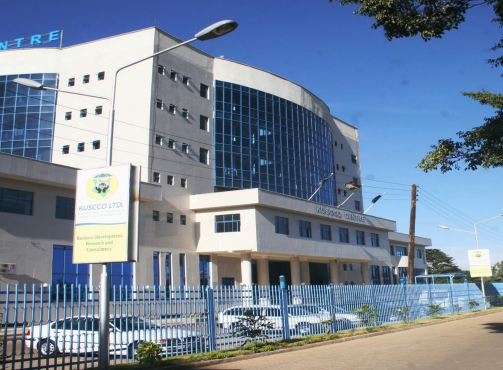
KUSCCO
KUSCCO INTRODUCTION 1. Umbrella Body for SACCOs. Over 5,000 SACCOs are members of KUSCCO 2. Represent SACCOs and lobby for their interest in front of Central Govt 3. Lender of Last Resort to SACCOs (incl. emergency loans) 4. Central Finance Fund – lending arm 5. CFF’s Green Energy Fund (Cookstoves, Solar, Solar Irrigation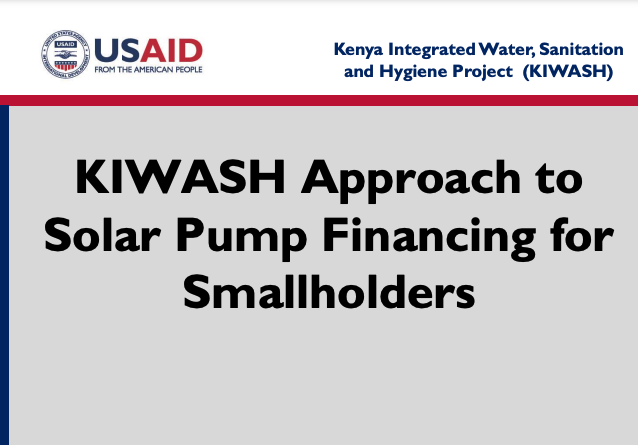
KIWASH Approach to Solar Pump Financing for Smallholders
GOAL: Significantly impact the supply of water and sanitation services, and nutrition among poor urban and rural households in the 9 target counties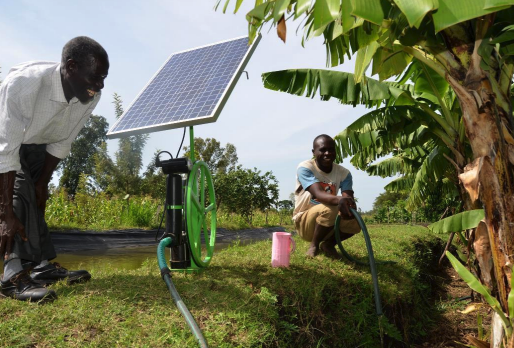
Factors Influencing Solar Water Pump Adoption by Smallholders in Kenya
USAID-KAVES –Who we are and what we do Kenya Agriculture Value Chain Enterprises project 2013-17 USAID’s flagship Feed the Future agricultural development activity Goal of increasing productivity, incomes and nutrition of smallholder farmers Reducing poverty through value chain interventions Focus on maize, sorghum, dairy and selected horticultural crops 22 counties – offices in Nairobi, Kisumu, […]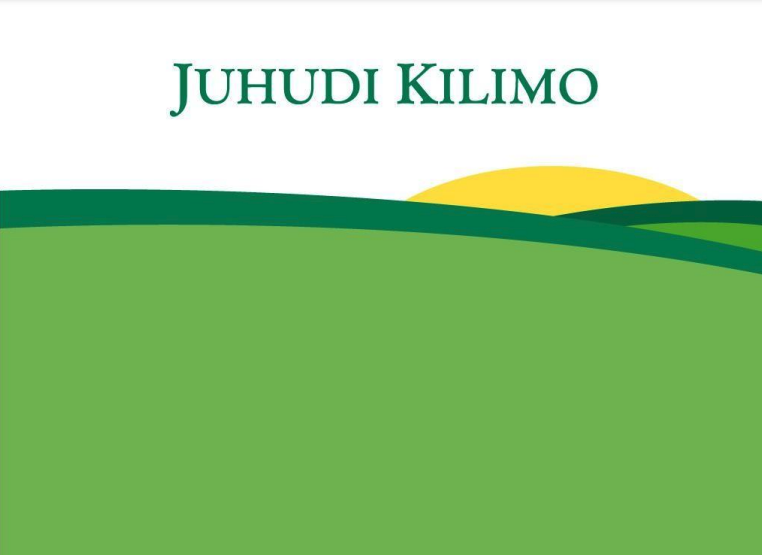
Juhudi Kilimo
Farmers are the hardest-working people on the planet and could just be the best bet to feeding a 98-billion world population in 2050.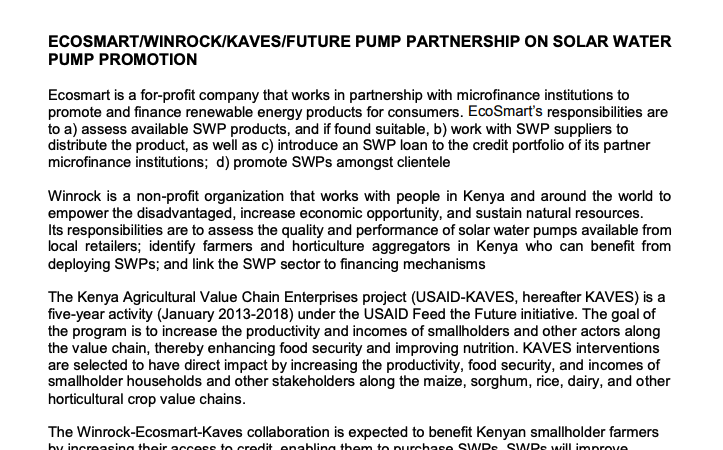
Ecosmart / Winrock / Kaves / Future Pump Parternership on Solar Water Pump Promotion
Ecosmart is a for-profit company that works in partnership with microfinance institutions to promote and finance renewable energy products for consumers. EcoSmart’s responsibilities are to: a) assess available SWP products, and if found suitable, b) work with SWP suppliers to distribute the product, as well as c) introduce an SWP loan to the credit portfolio […]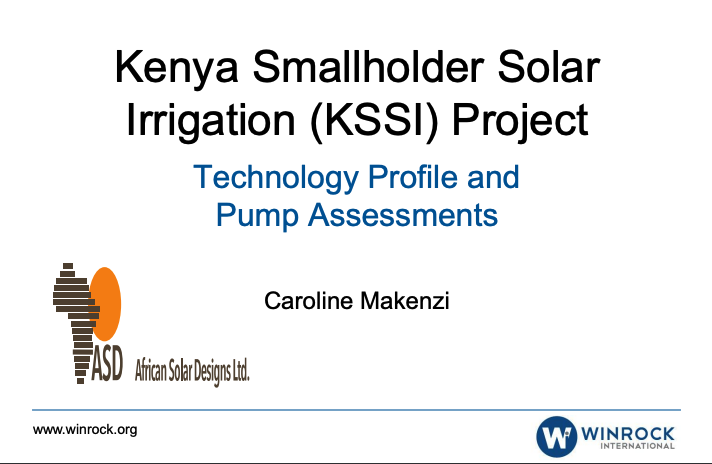
KSSI Project Technology Profile and Pump Assessments
Overview Farmers expectations of the solar pumps were generally met Most farmers intend to expand their farms due to the improved water access, reliability and reduced energy costs There is need for local capacity building at technician level to improve the quality of installations and maintenance at the counties Security is a concern which often […]